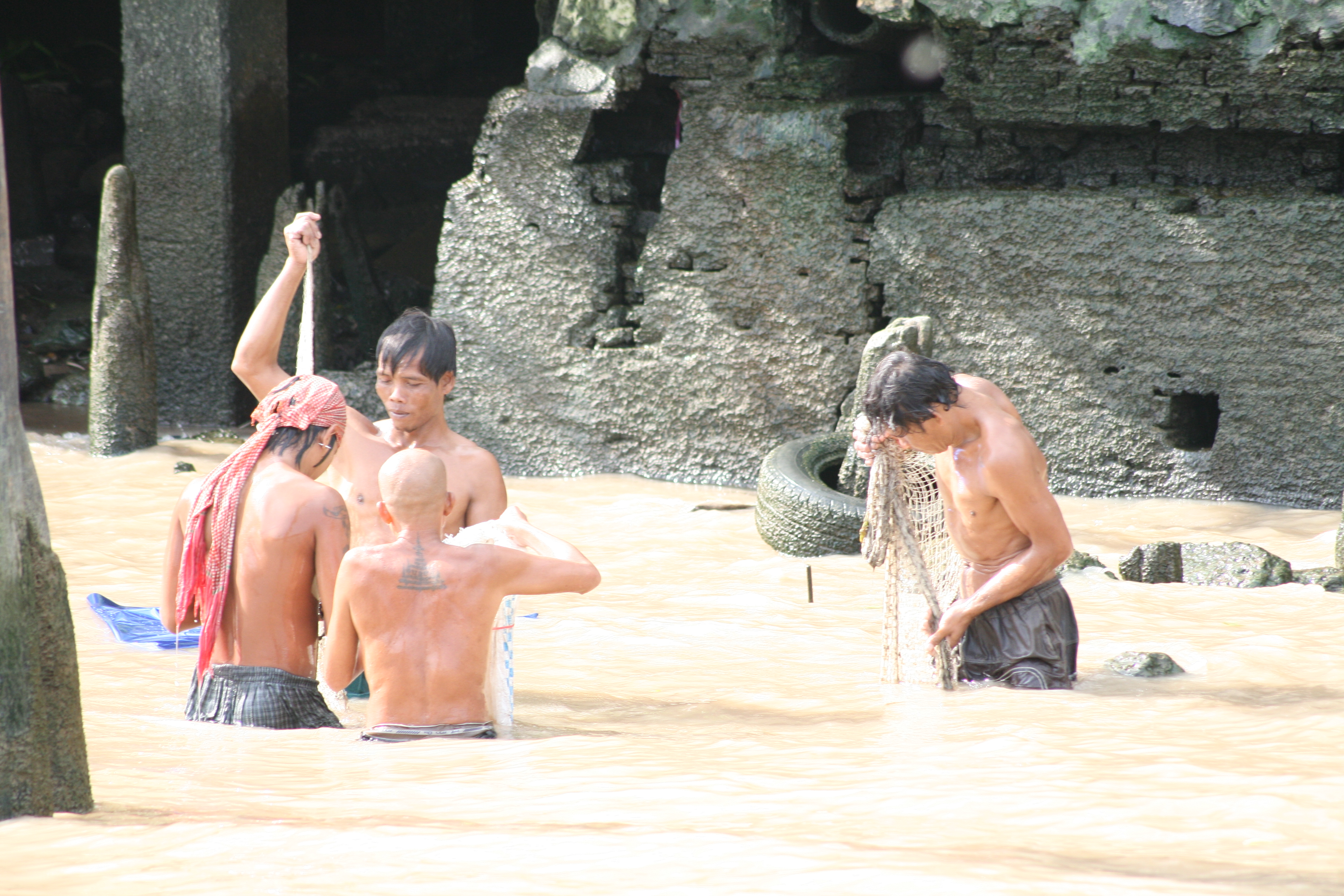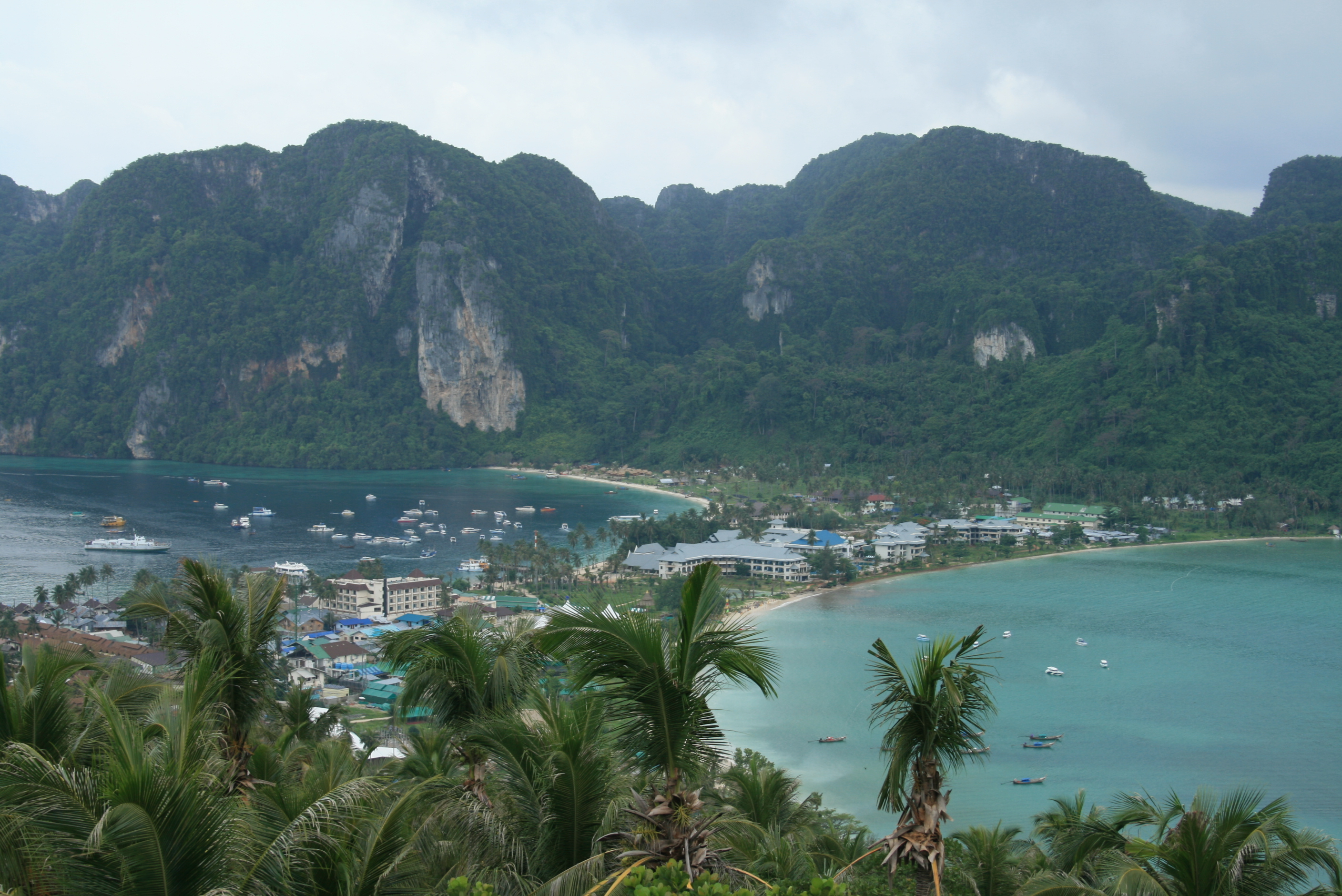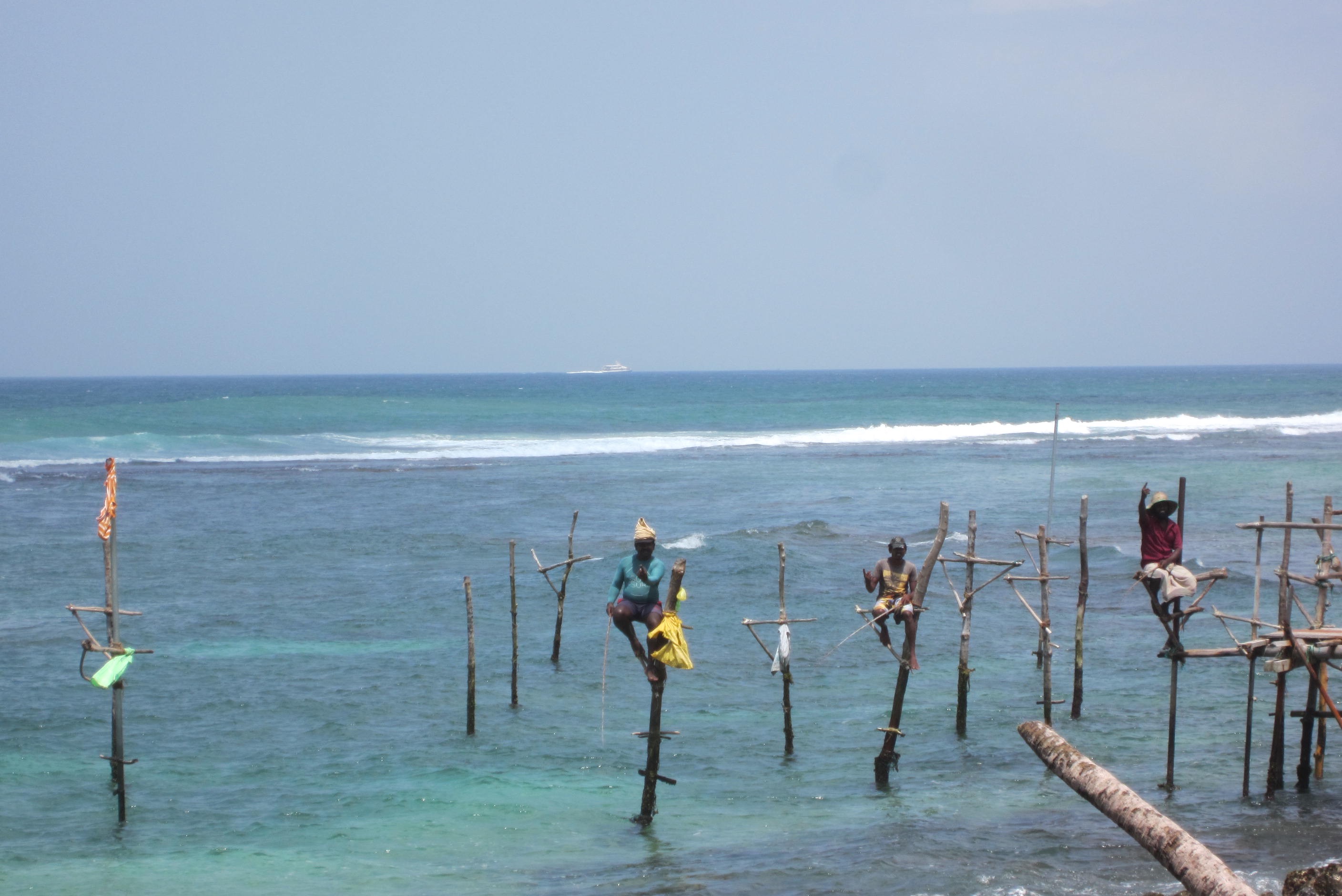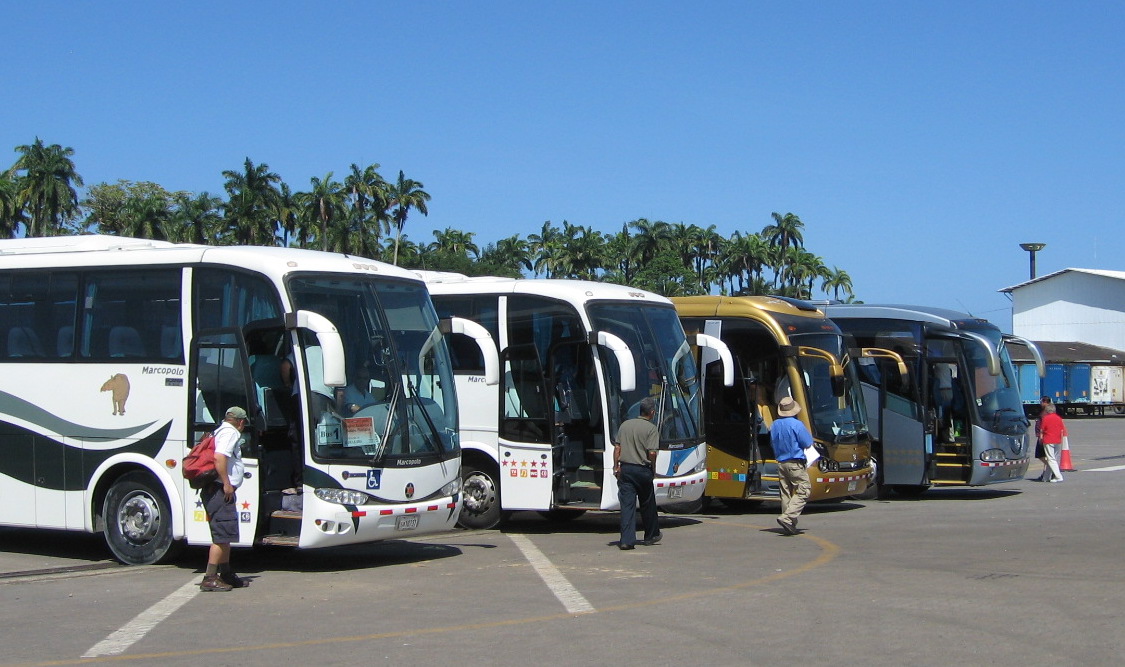CLIMATE CHANGE
Connecting Global Climate Action
This report outlines tourism’s contribution to climate change and the progress made in the past ten years
UNWTO publication on Climate Change
Continuing on from the Davos convention on climate change and tourism, this publication outlines tourism’s impacts and explains how tourism is responsible for contributing approximately 5% of GHG emissions. The Report “Climate Change and Tourism – Responding to Global Challenges” was commissioned by the World Tourism Organization (UNWTO), the United Nations Environment Programme (UNEP) and the World Meteorological Organization (WMO). The document provides a synthesis of the state of knowledge about current and likely future impacts of climate change on tourism destinations around the world, possible implications and trends in GHG emissions from the tourism sector.

Show more
Guide for Sustainable Tourism Best Practices
This Rainforest Alliance guide offers practical tools, frameworks and best practices for climate change adaptation and mitigation. Published by leading experts in the field, the guide was produced by the UN.
Geo Report – UNEP
‘The GEO Year Book 2006 is a survey of the changing global environment produced by the United Nations Environment Programme, in collaboration with many world experts in environmental research and action. The Year Book includes global and regional overviews. It highlights the linkages between environmental well-being, vulnerability and poverty; records recent findings on the value of ecosystem services; and describes new research findings on polar and ocean changes that may prove a turning point in the urgency of our awareness and response to global change’.

COMMUNITY BASED TOURISM
Effective Community Based Tourism: A Best Practice Manual
This report published by the Australian CRC for APEC illustrates some good best practices for community based tourism globally.
MARINE AREAS
IUCN Best Practice Guidelines
The IUCN has a number of best practice guidelines for protected areas, planning and management and marine protected areas. Not all completely relating to tourism, however, these guidelines offer some valuable insight into the planning and management needed for sustaining our valuable resources.
Marine Recreation Guidelines
The Centre for Environmental Leadership in Business (CELB) was created by Conservation International to engage the private sector worldwide in creating solutions to critical global environmental problems in which industry plays a defining role. Most recently CELB, TOI & CORAL released “Practical Guide” to help marine recreation providers minimize the environmental impacts of their operations. This guide provides core questions which marine recreation providers can ask to assess their environmental impacts.

Show more
According to the Coral Reef Alliance, ‘for marine recreation providers – from dive operations to boat rentals to wildlife viewing tours – improving environmental performance can not only contribute to marine conservation and the economic development of coastal communities, it can also improve business, by increasing their attractiveness to companies seeking responsible suppliers’. These guidelines produced in conjunction with The Centre for Environmental Leadership in Business (CELB), the Coral Reef Alliance (CORAL), the International Hotels Environment Initiative (IHEI) and the Tourism Operators’ Initiative for Sustainable Tourism Development (TOI) developed this guide for good practice in marine environments.

DESERTS
Sustainable development in Deserts
According to the UNWTO ‘This new UNWTO handbook addresses the development of tourism in deserts and areas that are experiencing desertification. It is aimed at the international community, and in particular the governments of countries with desert areas within their territories, as well as the international, national and local private-sector actors that operate in them, with a view to helping them implement policies and actions, and to provide them with a resource they can rely upon in carrying out their initiatives. It is also a valuable reference for local desert communities, who are the main stakeholders in this process.
GREEN EVENTS
Climate Change Adaption & Mitigation in the Tourism Sector
This guide of Sustainable Tourism Best Practices is meant to be a facilitating tool for community businesses and for SME’s to help adopt and apply specific actions that allow them to carry out and manage sustainable development.
Guide to Festival and Event Greening
This website has been set up to help festivals and events reduce their impact. Best practices, tips, checklists and more are featured here
Guide to Greening your Events
This guide is a short and easy checklist style guide to help festivals and events reduce their environmental footprint.
TickPick Guide to Greening Events
This guide is US focused but contains lots of great statistics and focuses on the event industry, especially venues
Make Sense
A toolbox to help those who care about waste solutions


LABOUR
Labour Standards, Social Responsibility & Tourism
A report by Tourism Concern about the impacts of tourism on host communities and outlines the need to respect the rights and interests of people living in tourism receiving areas
Developments and challenges in the hospitality and tourism sector
An issues paper written by the International Labour Office at the Global Dialogue Forum for the Hotels, Catering, Tourism Sector.
POLICY
This Guide was developed by the United Nations Environment Programme and the World Tourism Organization and presents a comprehensive set of instruments for governments, ranging from planning regulations to economic instruments and the application of certification and indicators, and it sets out 12 aims for sustainable tourism and their implications for policy. The Guide is based on practical experience, illustrated by numerous examples and case studies across the world. Different destinations and case studies on policy and sustainable tourism are outlined.
The Business Case for Sustainable Development
The UNEP has a number of good practice guides and this one focus on the green economy and return on investment

Show more
Case studies posted on this site have been submitted by governments to the Secretariat of the Convention on Biological Diversity (CBD). Case studies range from using tourism as a development tool to biodiversity issues and their impacts.
What is the CBD? Signed by 150 government leaders at the 1992 Rio Earth Summit, the Convention on Biological Diversity is dedicated to promoting sustainable development. Conceived as a practical tool for translating the principles of Agenda 21 into reality, the Convention recognizes that biological diversity is about more than plants, animals and micro organisms and their ecosystems – it is about people and our need for food security, medicines, fresh air and water, shelter, and a clean and healthy environment in which to live.
Equations report on India’s tourism policy
EQUATIONS is a non-profit organisation established for research, training and the promotion of holistic tourism. This Indian group provides research and publications and a resource centre. Their focus on tourism policy in this case study assesses the impact of Indian Tourism Policy on the tourism sector and makes a preliminary study of the possible impact such policy imperatives might have on the socio-economic fabric of the country. An interesting read.
UN Commission on Sustainable Development
This site outlines such reports as the Sustainable Development of Tourism where the Secretary-General describes trends in tourism, incorporation of sustainability in tourism development and issues for further consideration. Documents which can be downloaded also include Tourism and Local Agenda 21 Publication and UNEP Cooperation with GTZ on sustainable tourism in Latin America and the Caribbean.

TRAVEL
Lonely Planet Guides – believing in responsible travel
Lonely Planet offers their readers travel tips to be green, outlines their efforts to reduce their impact on the environment and outlines a ‘code green’ to help you explore authentic travel.
The Ethical Travel Guide
The Ethical Travel Guide was produced by Tourism Concern and is the essential global resource for responsible travellers. The guide has hundreds of new ideas for your next holiday and visit amazing communities not listed in other guidebooks. If you are looking for your next trip to have a positive impact on the local people and their environment, then this book will help you find places to stay and visit in over 60 countries.
For more information about how to purchase a copy,
please email info@tourismconcern.org.uk
CARBON CALCULATORS
Carbon Calculating
Carbon Dioxide is a greenhouse gases that which traps solar heat and warms the earth’s climate. Every time we burn these fuels we produce more waste carbon dioxide – 8 billion tons a year in fact. Within 50 years we will have twice as much Carbon Dioxide in the atmosphere as we had before industrialisation. By 2050 climate change will have directly led to the extinction of 30% of species, the death of 90% of coral reefs and the loss of half the Amazon rainforest.
Flying is the most carbon intensive way to travel. ‘Aviation at present accounts for 3% of greenhouse gases and generates nearly as much carbon dioxide in one year as the total population of Africa.’ There is a lot of debate about helping reduce carbon emissions (or carbon offsetting) and there are a few organizations around the world that help you contribute by planting trees.
Some organizations to consider are:
- Friends of Conservation Carbon Calculator
- Choose Climate
- Climate Care
- Future Forests
- Woodland Trust
- Trees for Life
* Be warned that some organizations are more press relations that actually reducing carbons. Also there are arguments that it is better to preserve a bog than plant a tree-be conscious!
Sources for stats: www.risingtide.org.uk, www.friendsofconservation.org


GENERAL
Travel Foundations Training Tools
The Travel Foundation works in partnership with the industry to develop programmes to train staff on sustainable tourism. Their website offers a number of guides, videos and pamphlets useful for training staff on sustainable tourism.
Destinet – DestiNet is a Portal for tourism destinations and their stakeholders. The website contains information about sustainble tourism, indicators, policy, guidelines and many useful links to certification, definitions and stakeholders.
Show more
Best Practices Database
This searchable database contains over 1600 proven solutions from more than 140 countries to the common social, economic and environmental problems of an urbanizing world. It demonstrates the practical ways in which public, private and civil society sectors are working together to improve governance, eradicate poverty, provide access to shelter, land and basic services, protect the environment and support economic development.
Tour Operator Initiatives Best Practices
A ‘green’ checklist for hotels, an education programme for customers on coral reef protection in the Red Sea and financial support to local communities in the Dominican Republic are just some of the actions being undertaken by tour operators in their efforts to promote integration of environmental and social practices in their every day businesses.
The Tour Operators´ Initiative (TOI), a group of 25 tour operating companies, ranging from small specialised operators to some of the biggest names in the business, including First Choice and TUI AG, has compiled a collection of case studies to demonstrate how holiday packages can be successfully developed on sustainability principles.
Released on Environmental Awareness Day at the World Travel Market, their new report, “Sustainable Tourism: The Tour Operators’ Contribution,” shows practical ways in which tour operators can contribute to sustainable development by working with their suppliers, with their customers, with stakeholders in destinations and with their own staff.
Over 30 case studies, grouped in the key business areas of supply chain management; internal management; product management and development; customer relations; and co-operation with destinations provide an overview of the diverse approaches and tools that tour operators can adopt. The supply chain management examples include the use of `green’ checklists to assess hoteliers, the introduction of environmental clauses into contracts, the provision of technical assistance, and the introduction of a suppliers´ food hygiene campaign. Each example provides an overview of the development and implementation processes as well as an analysis of the benefits generated for the company, the local community and for the environment.
Stepping up: creating a sustainable tourism enterprise strategy that delivers in the developing world
Pointing to the link between conservation and poverty alleviation, this paper assesses the potential of sustainable tourism or ecotourism as an effective poverty reduction strategy.
IADB’s publication series on certification.
Check out this website for a series of practical, how-to handbooks on sustainable tourism certification
